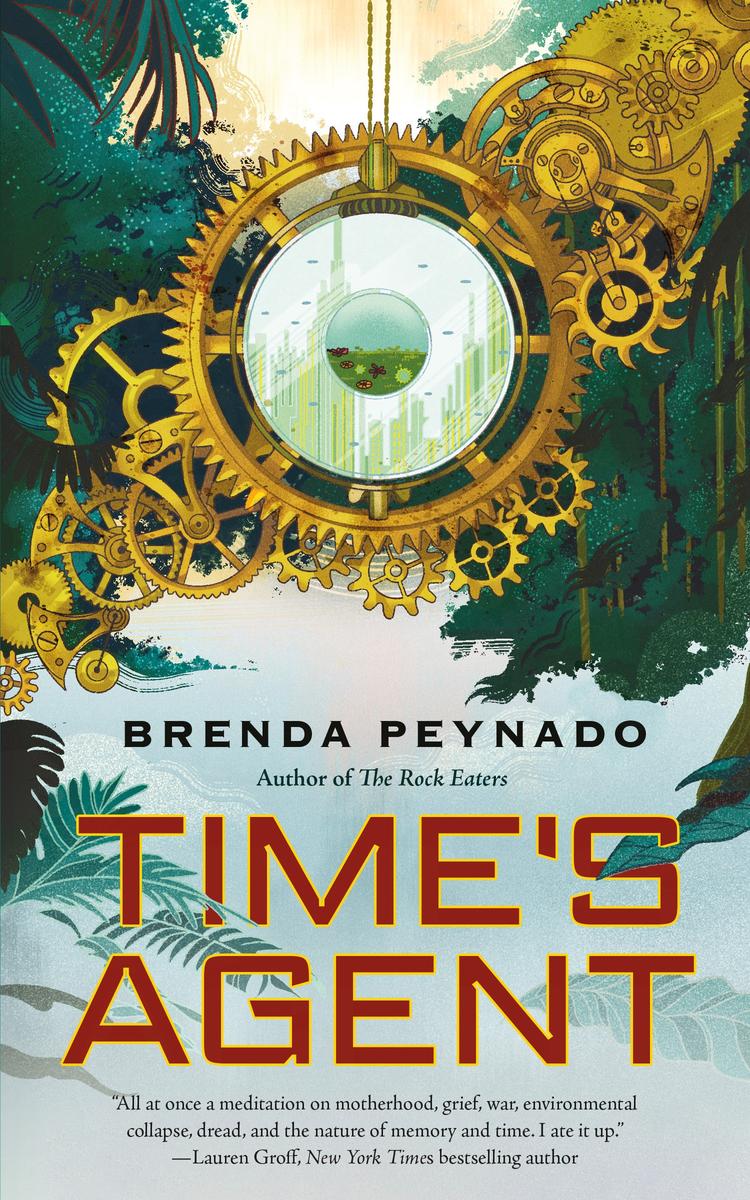Tak! reviewed Time's Agent by Brenda Peynado
Time's Agent
4 stars
BLEAK

208 pages
English language
Published Aug. 13, 2024 by Doherty Associates, LLC, Tom.
Pocket World–a geographically small, hidden offshoot of our own reality, sped up or slowed down by time.
Following humanity’s discovery of pocket worlds, teams of academics embarked on groundbreaking exploratory missions, eager to study this new technology and harness the potential of a seemingly limitless horizon. Archeologist Raquel and her wife, Marlena, once dreamed that pocket worlds held the key to solving the universe’s mysteries. But forty years later, pocket worlds are now controlled by corporations squeezing every penny out of all colonizable space and time, Raquel herself is in disgrace, and Marlena lives in her own pocket universe (that Raquel wears around her neck) and refuses to speak to her. Standing in the ruins of her dream and her failed ideals, Raquel seizes one last chance to redeem herself and confront what it means to save something–or someone–from time.
BLEAK
This book was a potential book for the #SFFBookClub poll for a while, but I ended up reading anyway because it looked intriguing.
As a reader, it seems like a novella is a hard length to hit; it's hard to have the space for both pacing and sufficient worldbuilding, and it's also hard to have enough runway for the resolution to resonate and feel satisfying. The short of it is that I feel like this novella nailed it for me.
The worldbuilding here is brutal. The book kicks off with idyllic introduction of Raquel working for the Global Institute for the Scientific and Humanistic Study of Pocket Worlds. Pocket worlds are small offshoots of reality, much smaller than our own universe--maybe the size of a meadow or a room or a bag even--and they can run at different time rates to our own universe.
After the protagonist …
This book was a potential book for the #SFFBookClub poll for a while, but I ended up reading anyway because it looked intriguing.
As a reader, it seems like a novella is a hard length to hit; it's hard to have the space for both pacing and sufficient worldbuilding, and it's also hard to have enough runway for the resolution to resonate and feel satisfying. The short of it is that I feel like this novella nailed it for me.
The worldbuilding here is brutal. The book kicks off with idyllic introduction of Raquel working for the Global Institute for the Scientific and Humanistic Study of Pocket Worlds. Pocket worlds are small offshoots of reality, much smaller than our own universe--maybe the size of a meadow or a room or a bag even--and they can run at different time rates to our own universe.
After the protagonist Raquel falls into a fast time pocket world and comes back forty years later (while only a few moments have passed relatively for herself), the world has changed for the worst. Her institute is no longer doing scientific studies, her daughter has died, and capitalism has moved in to colonize the new spaces of these pocket worlds. The implications for labor when corporations have access to nearly infinite time and space goes exactly where you think it might; people signing up for a decade of work to then come back before breakfast, extra dumping grounds for garbage, or even locking rioters into these worlds. These are just a couple examples, but woof this book captures the capitalist extraction of time and space from a new technology.
Raquel is an archeologist of pocket worlds, and believes the Quisqueyan Taino people might have escaped into a pocket world to avoid genocide and is looking for clues to their past. She is the descendant of the Taino but also of conquistadors, and in some ways is at the intersection of both. What really works for me in this book is how her personal history and struggle parallels the larger story about colonialism and capitalism--she has her own insatiable wants for knowledge and family, especially around grief about her archeological work and her lost daughter.